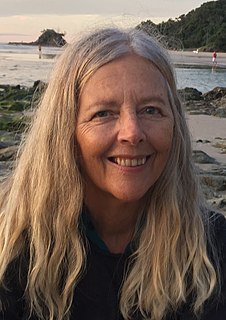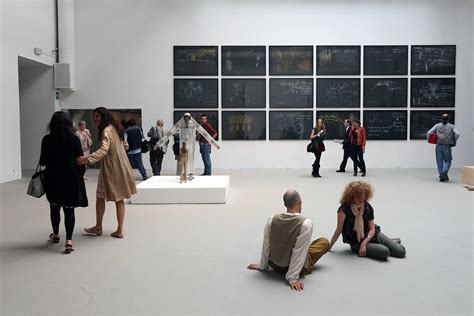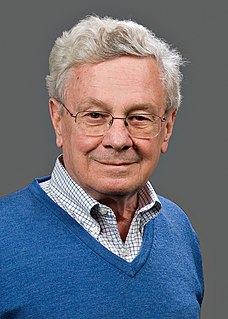A Quote by Helena Norberg-Hodge
I have seen that community and a close relationship with the land can enrich human life beyond all comparison with material wealth or technological sophistication. I have learned that another way is possible.
Related Quotes
We might expect intelligent life and technological communities to have emerged in the universe billions of years ago. Given that human society is only a few thousand years old, and that human technological society is mere centuries old, the nature of a community with millions or even billions of years of technological and social progress cannot even be imagined. ... What would we make of a billion-year-old technological community?
Ask people who are close to the natural world: farmers, people who work the land or in some way use the land for their livelihoods. They will tell you what they are seeing isn't so good. They will tell you the changes they have seen in the past twenty years are remarkable in one way or another and unlike anything they had seen before that.
When you read Marx (or Jesus) this way, you come to see that real wealth is not material wealth and real poverty is not just the lack of food, shelter, and clothing. Real poverty is the belief that the purpose of life is acquiring wealth and owning things. Real wealth is not the possession of property but the recognition that our deepest need, as human beings, is to keep developing our natural and acquired powers to relate to other human beings.
This pause in time, within time ... When did I first experience the exquisite sense of surrender that is only possible with another person? The peace of mind one experiences on one's own, one's certainty of self in the serenity of solitude, are nothing in comparison to the release and openness and fluency one shares with another, in close companionship.
The loss of the religious understanding of the human condition—that Man is a fallen creature for whom virtue is necessary but never fully attainable—is a loss, not a gain, in true sophistication. The secular substitute—the belief in the perfection of life on earth by the endless extension of a choice of pleasures—is not merely callow by comparison but much less realistic in its understanding of human nature.
Technological society leads to increasing numbers of people who cannot adapt to the inhuman rhythm of modern life with its emphasis on specialization. A class of people is growing up who are unexploitable because they are not worth employing even for the minimum wage. Technological progress makes whole categories of people useless without making it possible to support them with the wealth produced by the progress.
No man should be viewed as having more to offer the world than another. We are all equals and every human being has something of value in their composition which makes them unique, just as every country has their own unique resources to share with the world. Never discount somebody based on material wealth, for true wealth is what cannot be seen. Never discount a country by what they can't provide your country, while their resources may benefit other lands in need.
Let's talk about the artist's desire to go beyond the pictorial or the representational and the desire to create the abstract - the idea that painting can go beyond what is seen. What we found is that, increasingly, painting became about paint, its own material truth. When I'm talking about the way that we look at others and the way that we see ourselves increasingly, looking at others becomes its own material truth.
Our culture is hung up on and overemphasises what can be derived from material objects. I think this is something quite new, over the past 200 or 300 years - that life has become about accumulating material wealth. The 21st century is not about accumulating material wealth like the 20th century. It's already eroding.
We have to do away with a false and misleading dualism, one which abstracts man on the one hand and technology on the other, as if the two were quite separate kinds of realities.... Man is by nature a technological animal; to be human is to be technological.... When we speak of technology, this is another way of speaking about man himself in one of his manifestations.
My favorite quote: The land ethic simply enlarges the boundaries of the community to include soils, waters, plants, and animals, or collectively: the land. In short, a land ethic changes the role of Homo sapiens from conqueror of the land-community to plain member and citizen of it. It implies respect for his fellow-members, and also respect for the community as such.






































